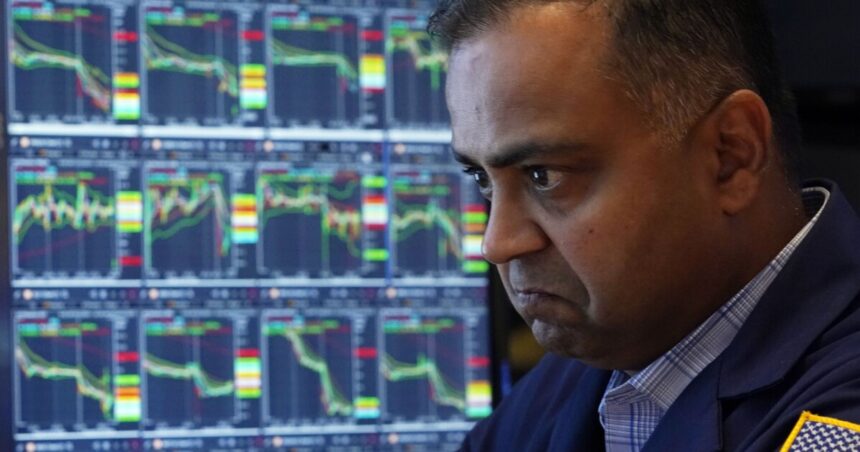After a disappointing jobs report, there are widespread fears of a U.S. recession that caused global markets to plummet on Monday. The Dow Jones Industrial Average dropped over 1,000 points during midday trading.
Gregory Daco, chief economist at EY-Parthenon, believes that although short-term market volatility may raise concerns about Americans’ 401(k) retirement accounts, it does not necessarily indicate long-term financial problems.
“It’s important to look at the bigger picture,” Daco told Scripps News. “Not everyone is retiring in the near future. Most of us will still be working for some years to come. So, it’s essential to step back from the day-to-day fluctuations. Overall, the stock market gains over the past year have been significant.”
RELATED STORY | Latest job report sparks layoff anxiety among Americans
Much of the market volatility is attributed to concerns that the Federal Reserve missed an opportunity to address a potential recession by announcing that it will not lower federal interest rates from their current 23-year high.
“There seems to be an overreaction due to the weakness in the U.S. labor market, as seen in the July jobs report,” Daco said. “There’s a fear that the Fed is lagging in easing monetary policy.”
RELATED STORY | Is the US in a recession? A survey found most Americans think so, and here’s why
The Federal Reserve had raised interest rates in 2022 and 2023 to combat high inflation, maintaining them at their highest levels since early 2001 – between 5.25% and 5.5% for the past year. Despite calls for an emergency rate cut, Daco advises taking a broader view of your portfolio.
“Unless there’s a widespread market sell-off across all sectors that significantly impacts private sector activity, we shouldn’t expect a severe pullback in the private sector,” Daco explained.
RELATED STORY | Age in America: Is there a ‘magic number’ Americans need to retire comfortably?
In times of market volatility, it’s tempting to check your retirement account balances frequently. However, Daco emphasizes having a “broader perspective” when evaluating your portfolio.
“It’s crucial to ensure a balanced approach to risk and returns,” he said. “In an environment where the Fed is expected to ease monetary policy over the next year or so, strategic placement of investments in the equity and bond markets is essential.”





